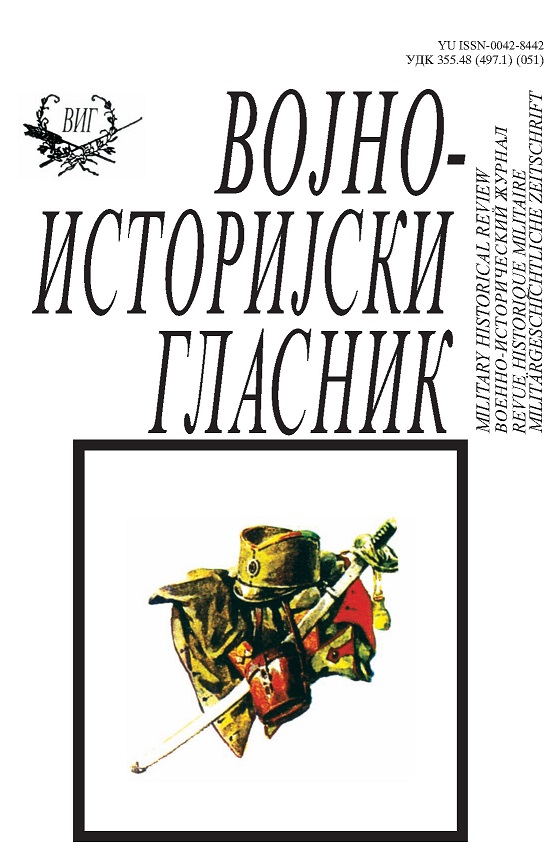Улога Лиге народа у очувању мира на Балкану 1925. године
The Role of the League of Nations to Maintain Peace in the Balkans in 1925
Author(s): Katerina DanailovaSubject(s): Military history, Political history, International relations/trade, Interwar Period (1920 - 1939), Geopolitics, Peace and Conflict Studies
Published by: Institut za strategijska istraživanja
Keywords: League of Nations; maintaining peace; Balkans; 1925; armed conflict; Greece – Bulgaria relations;
Summary/Abstract: This publication is intended to demonstrate that the League of Nations is the main factor to resolve the armed conflict between Greece and Bulgaria and preserving peace in the Balkans in October 1925. A peaceful proposal by President Wilson to the European powers on 18 December 1916 for the formation of an international organization to ensure peace throughout the world quickly „matures“ and took place on January 25, 1919. Peace building emerged as a priority in the work of the League of Nations. According to Art. 10 of its Statute, each State Party to the international organization is obliged to respect the territorial integrity of member states in the organization. Greek-Bulgarian armed conflict constitutes a League of Nations touchstone from which you will see how it is not only proclaimed but it is an actual international organization that is able to eliminate the conflict. Moreover, both involved in armed conflict countries are members of the League of Nations. Chronological limits of the treated problems include the time from 22 of October to 12 of December 1925.The intervention of League of Nations to end the Greek-Bulgarian armed conflict is a verbal note from Bulgarian government to secretary of the Council of League of Nations Sir Eric Dramond in which insists on the convening of an emergency to resolve the conflict on 22 October 1925. Sir F. Dramond immediately informed the Chairman Aristied Brian and had decided to convene an extraordinary session of Council of League of Nations in Paris on 26 that month. As a result of coordination between them F. Briand sent a telegram with the same content to governments of countries involved in a conflict on 23–24 October. Informing the governments decision to convene an emergency in connection with the Greek-Bulgarian armed conflict, two countries are urged to comply with Art. 12 of the League of Nations Covenant, they are forbidden to resort a war. During the XXXVI session dedicated to the Greek-Bulgarian armed conflict, are held five meetings in 1925 from 26 to 30 October. The action of the military attaches-Delta, Dzhayns and Visconti, whose mission started on 27 October and ended on 9 November, 1925 deserves attention. The Council of League of Nations formed an international committee to clarify the reasons, occasion, and the consequences of the Greek-Bulgarian armed conflict, and also measures to prevent future ones. The Presidency is entrusted to the British ambassador in Madrid Horast Rambold, its members are the French General Major General Serini, Italian General Major Ferario, Plenipotentiary Minister of Sweden in The Hague de Adlerkroyts a member of the Dutch Parliament Droklever Fortuin. Abraham H. is. a Secretary of the committee and Captains Metheny, Sispendes and Pietromarko are his assistants. The report of O. Chamberlain referred to the functions and duties of the International Inquiry committee. Its members have to develop and make specific proposals to the Council of League of Nations to prevent future armed conflicts between the two countries. The examined documents demonstrated undeniable desire for objectivity and impartiality of the International Inquiry committee. It describes the attack of the Greek army on 22 October 1925 as a deliberate intervention in the territory of sovereign Bulgaria.
Journal: Vojnoistorijski glasnik
- Issue Year: 2009
- Issue No: 1
- Page Range: 124-146
- Page Count: 23
- Language: Serbian

